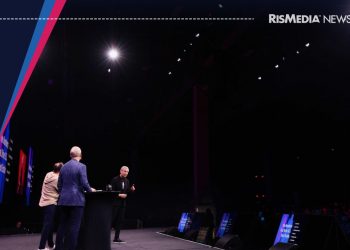RISMEDIA, June 3, 2010—I’m a cheapskate. I clip coupons. I mend holes in clothes I used to throw out. My check engine light is on. It’s likely not just a service issue with 195,000 miles on the odometer. I’m not ashamed to tell you this. Deep down you probably suffer from some of the same issues. I wasn’t always this way, I’m actually proud that I figured out how to pinch a penny so late in life.
I’ve been thinking a lot about the Great Depression and how the United States pulled through it. Stories my mom and dad told burrow into my psyche. My dad was born in 1911 and was working for my grandfather in his two small businesses by the time the Depression hit.
My mom, the daughter of a successful Michigan doctor, turned 9 in 1929. Her mother shocked her one day when she cut out cardboard as an insole in her worn shoes. She told me that her father treated patients for whatever they could pay during those years. To her dad, it was more important for families to be seen by a doctor than for her to wear new shoes.
Dad told me stories about those trying times, too, and his stories weren’t about how tough it was but about how tough almost everyone had it. He helped with his family businesses—one was the Ohmann Theatre, which thrived during the Depression. Even though the business did OK, he still learned how to mend his socks, since buying new ones was wasteful. He told me this while darning a sock one night and then taught me how to thread a needle.
About 14 years ago, dad passed away. At his funeral, a story came from a man who took the time to reveal that my dad had opened the side doors to the theatre on more than a few occasions to let kids who couldn’t pay in to see the show.
Who among us in the building business hasn’t been changed forever by the realization that the money machine we were cranking wasn’t some sort of perpetual motion machine?
In retrospect, we knew all along that the market would chill but ignored the warnings. I for one can’t understand why I didn’t realize and hold important that the coupon clippers in line ahead of me weren’t standing between me and my busy life but were taking action that would financially benefit them (and that I should have been doing the exact same thing). I wish that I’d taken my newfound coupon clipper mentality and fed it steroids so that it would have trailed me to the office and forced me to be more judicious.
So what lessons are we going to leave with our children? Where’s the teachable moment in all of this? As important, what lessons have we learned as an industry, and what will we do with them?
My kids are hearing about saving more than spending. Our employees are, too. As a family, we remember those who are less fortunate in our prayers and talk about what we can do to help their plight.
At our company, we try to find the ways we might help those who need it most. Even when we don’t have work to dole out, contractors who stop by looking for work are given a friendlier ear than before. It only takes a few minutes to hear the quick pitch, and just having the chance to deliver it is sometimes gratifying enough to get through to another day for the pitcher.
At the end of the day, it’s all about the lessons we’ve learned and what we do with them. That’s really what my mom and dad did for me, and doing so taught me what to do for the next generation.
Rich Ohmann is COO of Raleigh, N.C.-based St. Lawrence Homes. He may be reached at rohmann@stlh.com.
Source: BIG BUILDER Magazine. Publication date: 2010-05-01.










